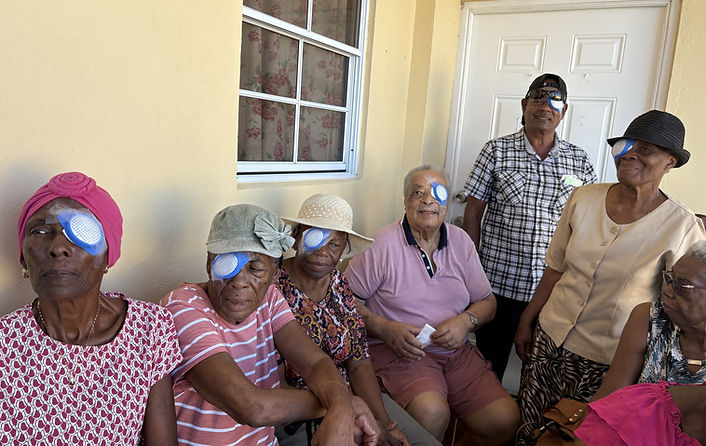GRENADA
VHI has served Grenada since 2024. Our primary model in Grenada is providing direct patient care combined with training focused on glaucoma and other skill development for local ophthalmologists. We send an annual volunteer surgical team to collaborate with local providers; our next program will provide a combination of cataract and glaucoma surgeries.


 |  |
|---|---|
 |  |
 |  |
VHI Partnerships in Grenada
The Grenada Ministry of Health oversees national health services and facilitates VHI’s integration into the country’s public health system. The St. George’s University Humanitarian Clinic provides logistical support, coordinates volunteer housing, and serves as a key academic partner. The General Hospital Ophthalmology Team—currently consisting of just two public health ophthalmologists serving the entire population—collaborates with VHI through patient pre-screening, surgical scheduling, and joint surgical care.
Volunteering with VHI in Grenada
Most Grenada programs are about a week long; volunteers typically fly into Maurice Bishop International Airport in St. George's and stay at the University Club Hotel.
Key Facts About Vision Care in Grenada
-
3.98% of the population experiences moderate to severe visual impairment, which is almost double the rate in the U.S.
-
Cataracts are the primary cause of severe visual impairment in Guatemala, and there is an acute need for cataract surgery.
-
Whereas there is more access to high-quality eye care in Guatemala City, there is a lack of care in other part of the county, especially among rural communities. Guatemala has an estimated 1.3 ophthalmologists per 100,000 people, which is lower than the Latin American average of 5.2
Creating Sustainable Solutions
-
Public eye care in Grenada is concentrated in one hospital with only two ophthalmologists who have requested VHI’s support to expand capacity and reduce preventable blindness.
-
Around 80% of blindness in Grenada is considered avoidable with appropriate medical or surgical intervention.
-
Remote island communities often require boat or plane travel to access care.
-
Clinic patient loads can reach up to 108 per day in the country.
-
Frequent surgical supply shortages delay access to treatment.
-
Vision impairment is common among older adults, caused by cataracts, glaucoma, diabetic retinopathy, and uncorrected refractive error.
-
A severe shortage of specialists and limited infrastructure restrict access to surgeries and specialized care.

.png)